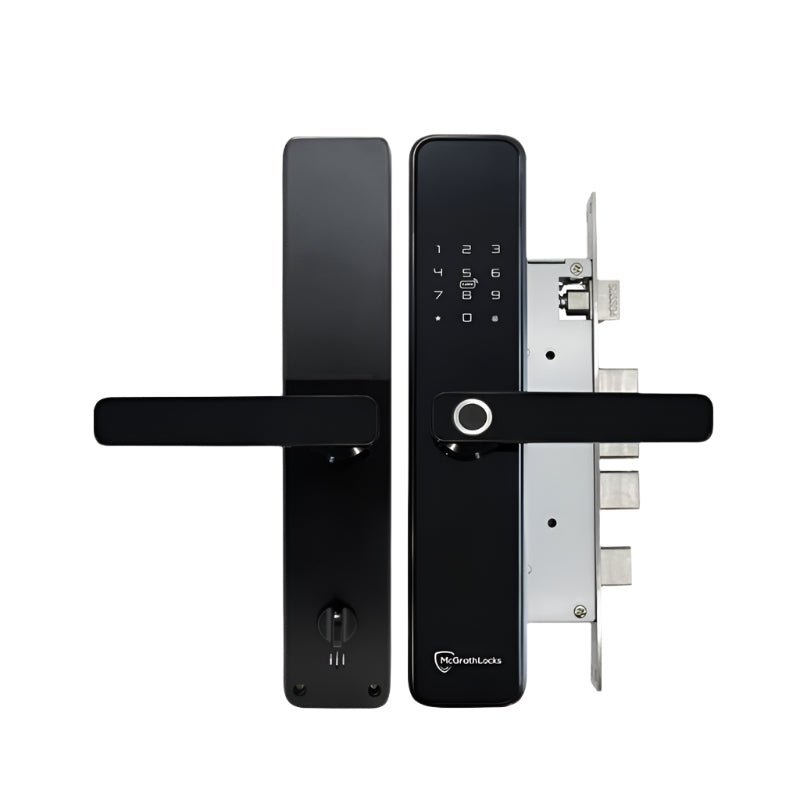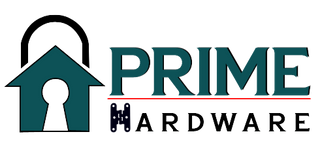Smart & Digital Door Hardware: How Technology is Revolutionising Door Security

Think about the last time you left home. Did you pause halfway down the street and wonder, “Did I lock the front door?” You’re not alone. It’s one of those little worries that sneaks into everyone’s head.
Now imagine checking your phone and seeing the answer right there. Better still, imagine being able to lock it with one tap, even if you’re miles away. That’s the world of smart and digital door hardware, and it’s changing the way we think about security in 2025.
What Exactly Is Smart Door Hardware?
At its core, smart hardware takes a traditional door lock and gives it brains, like the Zanda Stealth Smart Lock. Instead of relying only on a metal key, these locks connect with your phone, Wi-Fi, or even your fingerprint. They blend physical security with digital tech.
It’s not just front doors, either. A digital safe for valuables, a connected garage entry, or even smart sliding door locks are all part of the same trend. The idea is simple: give you more control, more flexibility, and more peace of mind.
How Does It Work?
Good question. Here’s the basic breakdown:
-
Smartphone apps – Most locks pair with an app where you can lock/unlock, set access codes, or track activity.
-
Keypads and PINs – Instead of a key, you tap in a number code.
-
Biometrics – Fingerprints or even facial recognition in some high-end models.
-
Remote access – Lock or unlock your door from anywhere, as long as you’ve got internet.
-
Integration – Some products, like a Yale smart lock, can talk to home systems such as Alexa, Google Home, or Apple HomeKit.
It sounds fancy, but in everyday use, it’s about making life simpler.
Types of Smart & Digital Door Hardware
There isn’t just one kind. Here are the main categories:
1. Smart Locks
These are the stars of the show. A Yale Luna Pro smart lock is a good example. No keys needed, just codes, apps, or biometrics. Some even let you create temporary codes for guests. Perfect if you’ve got Airbnb visitors or family popping in while you’re away.
2. Digital Safes
We all have things we’d rather keep out of reach: passports, jewellery, or private documents. A digital safe lets you protect them with PINs instead of fiddly little keys that can be lost. Many come with multiple user codes, so each person in the household can have their own.
3. Smart Deadbolts & Traditional Brands Going Digital
Even trusted names are moving with the times. A Lockwood door lock used to mean a strong mechanical lock. Now you can get versions with digital keypads and smartphone access, keeping the solid reliability but adding modern convenience.
4. Integrated Door Systems
Some setups combine a smart lock with video doorbells and motion sensors. With Gainsborough Mode Smart Entrance Lever Lock, you can not only control access but also see exactly who’s knocking all from your phone.
Who Should Consider Smart Door Hardware?
Honestly? Anyone who wants a bit more control over their security. But some groups benefit even more:
-
Busy families – No more handing out keys to kids or worrying about them losing them. Give them a code instead.
-
Frequent travelers – Check on your home from anywhere. Let cleaners, sitters, or deliveries in without needing a spare key.
-
Airbnb hosts – No awkward key handovers. Guests can use temporary codes.
-
Small business owners – Monitor who’s coming in and out, and at what times.
It’s not just about convenience, it’s about cutting down those everyday worries.
Are They Really Safer?
This is the big question. Can a digital lock actually be safer than a traditional one? The answer is: in many cases, yes.
Here’s why:
-
Harder to pick – With no traditional keyhole, there’s nothing for a burglar to tamper with.
-
Temporary codes – No risk of lost or copied keys floating around.
-
Activity logs – Some locks keep a record of who unlocked the door and when.
-
Encryption – Just like online banking, data is encrypted to keep hackers out.
That said, no system is perfect. Batteries need changing, and with cheaper models, glitches can happen. This is where trusted brands like Yale and Lockwood really shine. They’ve been in the lock game for decades, and now they’re bringing that reliability into the digital age.
Everyday Scenarios Where Smart Hardware Helps
To keep it real, here are a few situations where you’d thank yourself for going smart:
-
You’re carrying shopping bags and can’t reach your keys. Your smart lock opens as you approach.
-
A family member is locked out, but you’re stuck at work. You unlock the door for them through your app.
-
You’ve rented out your spare room. Instead of cutting extra keys, you give your tenant their own code, which you can remove anytime.
-
You’ve got cash and jewellery at home. A digital safe keeps them secure, no more hiding places under the bed.
It’s these everyday wins that make the switch worthwhile.
Things to Keep in Mind Before Buying
Not all smart locks are the same, so ask yourself:
-
Does it work with your type of door? (Older doors may need a specific model.)
-
Do you prefer phone access, keypads, or fingerprints?
-
How often are you away from home?
-
Do you want the lock to connect with other smart devices?
-
Are you okay with changing batteries once in a while?
Answering these makes choosing much easier.
Final Thoughts
Smart and digital door hardware isn’t just a gimmick. It’s part of the way security is evolving. From the convenience of a Yale smart lock to the reliability of a Lockwood door lock, or the peace of mind of a digital safe, the options today are practical, secure, and surprisingly easy to use.
If you’re the sort of person who’s ever worried about lost keys, late-night lock checks, or just wants to keep things simple, smart hardware might be the upgrade you didn’t know you needed.
Where to Look
There’s a wide range of smart locks and digital door hardware available at Primehardware.com.au. From modern designs to trusted classics with a digital twist, there’s something to suit every home or business.
